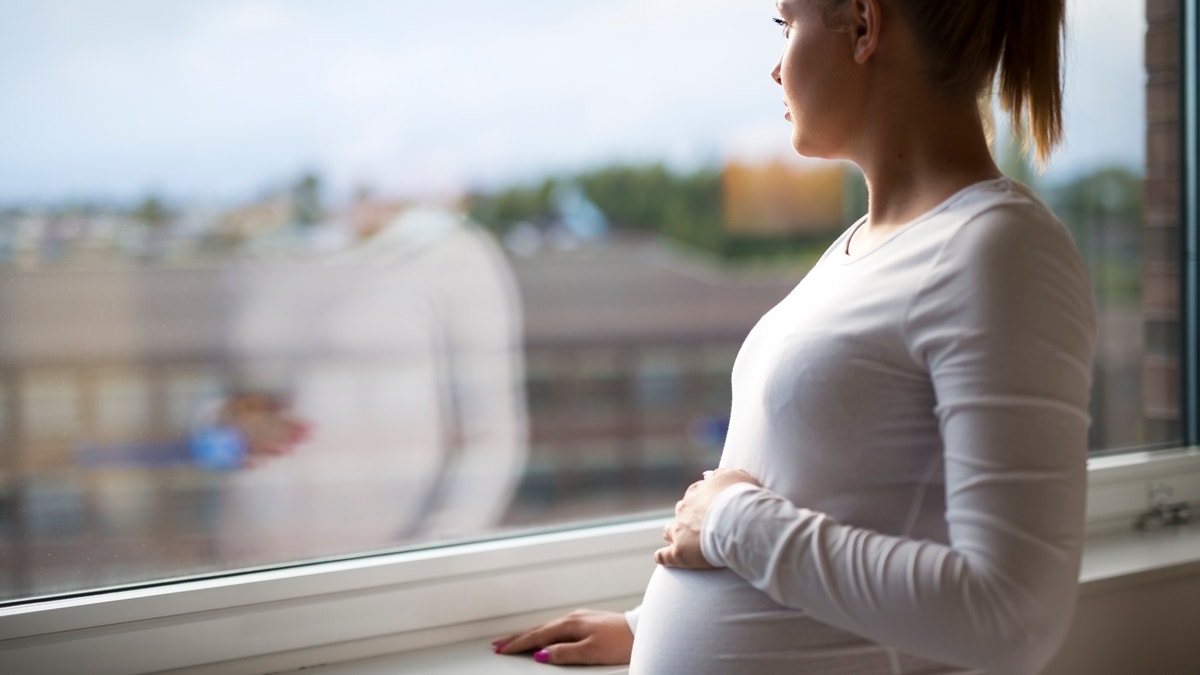
Thoughtful pregnant woman looks out the window home. Holding a hand on the tummy. Mental health and pregnancy. (iStock)
Adolescents whose mothers took certain antidepressants while pregnant with them are more than four times as likely to become depressed by age 15, compared with children whose mothers had psychiatric disorders but didn’t take the medication during pregnancy, according to a large new study.
The study, published in the Journal of the American Academy of Child & Adolescent Psychiatry, also found no link between the use of selective serotonin reuptake inhibitors (like Prozac and Zoloft) during pregnancy and the development of autism, ADHD or anxiety in children.
The new data examining nearly 65,000 women could make the decision on whether to continue medication during pregnancy even more fraught for women with depression and anxiety disorders. The study is one of very few to follow children for such a long time. Most earlier research ended when children were about 6 years old or younger. And it is the first study to link SSRI exposure in utero to a later risk of depression.
The results “are a bit worrisome,” says Heli Malm, an obstetrician at Helsinki University Hospital and lead author of the study. She notes that the oldest children in the study are just entering the ages when mood disorders tend to arise, so the numbers with depression could increase. But she cautions that the results are preliminary.
Indeed, the research looking at the longer-term effects of SSRIs on children exposed in utero is decidedly mixed. Some studies have found an increased risk of autism and ADHD. Others have found no association. Some studies have reported a higher rate of language and behavioral problems and motor issues in children whose mothers took SSRIs while pregnant. Others haven’t found a link.








































